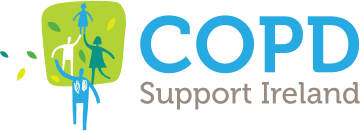- Estimated 380,000 people are living with COPD yet only 110,000 are diagnosed
- New educational Spirometry video launched today – watch here
- Further COPD self-management tools available on the HSE website
Today, (Wednesday, 17 November 2021), the HSE and National Clinical Programme (NCP) for Respiratory is marking World COPD Day, a global public health day to raise awareness, share knowledge, and discuss ways to reduce the burden of Chronic Obstructive Pulmonary Disease (COPD) worldwide.
This year the HSE is empowering people living with COPD to self-manage their symptoms and reminding them of the range of supports and resources available.
COPD is the most prevalent respiratory disease in Irish adults and is a major cause of morbidity and mortality. It is estimated that 380,000 people are living with COPD yet only 110,000 are diagnosed. At least 1,500 patients die each year of this disease and over 15,000 patients are admitted to hospital with COPD in Ireland.
COPD has considerable impact on the quality of life of the patient, families, and carers. The course of the disease involves ongoing medical care and in certain patients results in frequent hospital admissions. Spirometry is a test used to help diagnose COPD, and, to monitor the severity of the condition as the disease progresses. The HSE is launching an educational video to help patients better understand Spirometry, how it works, what to expect and what the results of Spirometry mean.
Dr Desmond Murphy, HSE National Clinical Lead for Respiratory explains: “COPD is a disease resulting from damage to the lungs most commonly by cigarette smoke. This damage to the airways can result in shortness of breath and tiredness because the affected person has to work harder to breathe. In addition, patients with COPD are more susceptible to getting chest infections.
“The most common symptoms of COPD symptoms are shortness of breath, sputum/phlegm production and cough. These symptoms are often under-reported by patients, which may contribute to the under-diagnosis of the condition.
“People can experience COPD in different ways depending on which symptoms trouble them most, how severe they are and how damaged their lungs are. COPD is a progressive illness, meaning it has several stages of severity. It tends to creep up on people slowly. This means that it can often be several years before symptoms and the underlying damage to their lungs reach a level that cause a person to see their doctor or healthcare provider. While there is no cure for COPD, there are tools and tips for patients to manage their symptoms, slow the progression of the disease and allow them to live well. We hope the resources developed will assist the COPD community with this.”
Clinical Programme & Care in the Community
The HSE National Clinical Programme for Respiratory launched the first National Clinical Guideline (no 27 Management of COPD) with the Department of Health on 3 November 2021. The development of this national clinical guideline for COPD is a major step forward in that it will ensure that COPD patients across the country receive consistent and standardised care, based on the best available evidence.
The HSE & NCP Respiratory End to End Model of Care for COPD is being rolled out to support people in community and hospital settings, with the establishment of specialist teams in the community, including Respiratory Integrated Care teams. This will support the care of more patients in the community, and, lessen the need for hospital-based care (hospital admissions for acute exacerbation of COPD can be significant events for patients). Some of the services that will be made available in the community include diagnostic tests such as Spirometry and evidence based interventions such as pulmonary rehabilitation.
A suite of COPD self-management tools are available for patients on HSE websites as well as COPD Support Ireland.
https://www.hse.ie/eng/health/hl/living/copd/ https://www.hse.ie/eng/about/who/cspd/ncps/copd/resources/
For further information and support, please discuss with your physician if there is a local Respiratory Care community team available for you to access. The national COPD Advice line can be contacted on 1800 83 21 46.
